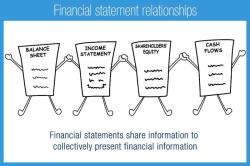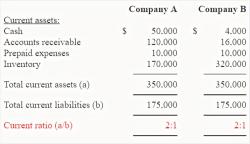What is the best checking account for kids?
Selecting the best checking account for kids involves considering various factors to ensure that it meets both the child's needs and the parent's preferences. Here are some key considerations and features to look for:
Low or No Fees:
- Look for a checking account with minimal fees, or even better, no monthly maintenance fees. Some accounts designed for children may offer fee waivers until a certain age.
Minimum Balance Requirements:
- Check if the account has a minimum balance requirement. Accounts with no or low minimum balance requirements are often more suitable for kids.
Interest Rates:
- While interest rates on checking accounts may be relatively low, it's still worth considering. Some banks offer interest on certain types of children's accounts.
Accessibility:
- Ensure that the account provides easy access to ATMs, preferably with a wide network, and offers online banking. This is especially important if the child is older and can manage their account independently.
Parental Controls:
- Some banks offer parental controls or joint account options, allowing parents to monitor and manage their child's spending. This can be useful for teaching financial responsibility.
Educational Tools:
- Look for accounts that come with educational tools or resources to help kids learn about money management. Some banks offer online resources or mobile apps with financial literacy features.
Age Restrictions:
- Check if there are any age restrictions for the account. Some accounts are specifically designed for younger children, while others may be targeted at teenagers.
Debit Card Availability:
- Consider whether the account comes with a debit card. Having a debit card can teach kids about responsible spending, but it's essential to ensure that spending limits and controls are in place.
In-Person Services:
- If in-person services are important to you, consider the availability of branches and ATMs in your area. Some parents prefer a bank with a physical presence for easier access to assistance.
Customer Service:
- Assess the quality of customer service provided by the bank. This can be crucial if you ever need assistance or have questions about the account.
Popular banks and credit unions may offer specific checking accounts for children or teens, so it's worthwhile to compare options from different financial institutions to find the one that best fits your child's needs and your preferences. Additionally, consider your child's age, financial goals, and your level of involvement in managing the account when making a decision.
Here are some of the best checking accounts tailored for kids:
- Chase First Banking: This account is available to kids aged 6 to 17, and it doesn't have any monthly fees or minimum balance requirements. Parents can set spending limits for their kids and track their spending online.
Opens in a new window
personal.chase.com Chase First Banking
- Alliant Credit Union Kids Savings Account: If your child is under 18, you can open an Alliant Credit Union Kids Savings Account for them without an initial deposit. The interest rate is 0.20%, and there are no monthly fees. Kids can access their accounts online or through the Alliant mobile app.
Opens in a new window
www.finder.com Alliant Credit Union Kids Savings Account
- Capital One Money Teen Checking: This account is available to teens aged 13 to 17, and it doesn't have any monthly fees or minimum balance requirements. Parents can set spending limits for their teens and monitor their account activity online.
Opens in a new window
www.capitalone.com Capital One Money Teen Checking
- Discover Student Checking: This account is available to students aged 13 to 17, and it doesn't have any monthly fees or minimum balance requirements. Parents can set spending limits for their teens and monitor their account activity online.
Opens in a new window
www.discover.com Discover Student Checking
- USAA Bank MyLife Checking: This account is available to kids aged 6 to 17, and there are no monthly fees for kids under 12. Parents can set spending limits for their kids and track their spending online.
Opens in a new window
www.macworld.com USAA Bank MyLife Checking
How do checking accounts for children differ from standard checking accounts?
Checking accounts for children typically have the following features:
- Low or no monthly fees. This is to make them more affordable for parents.
- No minimum balance requirements. This means that kids don't have to keep a certain amount of money in their account at all times.
- Parental controls. Parents can set spending limits for their kids and track their account activity online.
- Educational features. Some checking accounts for children come with educational features, such as online budgeting tools and financial literacy tips.
Checking accounts for children can help kids learn about money management and develop good financial habits. These accounts can teach kids how to save money, spend it wisely, and balance their checkbooks.
Advantages of checking accounts for kids:
- Financial literacy: Checking accounts can teach kids about money management and develop good financial habits.
- Saving money: Checking accounts can help kids learn how to save money.
- Spending wisely: Checking accounts can teach kids how to spend money wisely.
- Balancing checkbooks: Checking accounts can teach kids how to balance their checkbooks.
Checking accounts for children are a great way to help them learn about money management and develop good financial habits. If you are considering opening a checking account for your child, be sure to compare the features and fees of different accounts to find one that is a good fit for your family.
Is there anything else you want to know?













